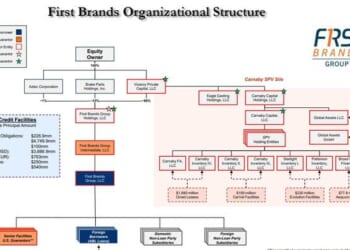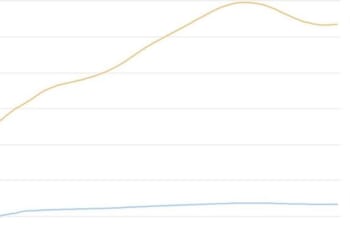from the pound-the-drum dept
Until very recently the only member of Congress excused from not having moved to impeach Trump was Rep. Grijalva, because until someone swore her in there was nothing she could officially do. But for everyone else already sworn into this 119th Congress, there was no excuse. There is no excuse. The refusal to act, to even start to pound the drum on impeachment, is an abdication of their own declared duty to the nation and destructive in and of itself.
I. Trump’s behavior invokes the oath
The oath every member of Congress has now taken, as we’ve just seen, is far from a meaningless formality; it is the key to the power granted by the Constitution to everyone elected to that august body and the commitment each must make to unlock it. A statute sets forth the specifics of what every member of Congress must promise:
“I, [NAME], do solemnly swear (or affirm) that I will support and defend the Constitution of the United States against all enemies, foreign and domestic; that I will bear true faith and allegiance to the same; that I take this obligation freely, without any mental reservation or purpose of evasion, and that I will well and faithfully discharge the duties of the office on which I am about to enter. So help me God.”
Failing to even try impeach Trump, as he wantonly violates his own oath, violates that promise.
We know it does because we can see, right at the beginning of the oath members of Congress take, the language where every oath-taker swears to defend against “all enemies foreign and domestic,” a promise that is broken every day that Trump is allowed to continue his lawless rampage unchecked. He is our domestic enemy, doing no less damage than any foreign adversary would do if given a chance, with no more legitimacy. His behavior, far beyond anything the Constitution allows his office by even the most executive-friendly read, is indistinguishable from that of an invading power, right down to occupying the nation’s capital with military.
Like any conqueror he has displaced our laws and constitutional guarantees, replacing them with his own autocratic and corrupt dictates and whims. He has destroyed infrastructure and public property and gutted civic institutions the nation had long invested in and still depended on. He has looted the public treasury and wasted the nation’s wealth. He has undermined the local economy, public health, and the national security apparatus, leaving the nation weaker and more vulnerable. He has antagonized allies, encouraged enemies, and engaged in illicit war. He has committed ethnic cleansing of the population. And he has abused the power he has amassed to suppress the opposition that would seek to wrest the country back from his imperial clutches.
None of these things that he’s done “preserve, protect and defend the Constitution of the United States,” as he promised to do, nor do they amount to “faithfully execut[ing]” the office that he was entrusted with. None of these things “take care” to make sure the laws of the United States are upheld, nor are most even lawful themselves. None of these things are in service of the United States, its people, and its constitutional order; they are only in service of himself.
But what these things are, in fact, are the high crimes and misdemeanors that make him eligible for impeachment and removal from the office he abuses to inflict his harm on us. And Congress obligated to take such steps to defend the nation from someone so hostile to its survival.
Yet the nation still waits for it to start.
II. Nothing excuses Congress’s inaction
That Trump may be a homegrown threat does not exonerate Congress from its duty to police him; the oath provides no distinction between foreign and domestic dangers that must be defended against, nor does the Constitution itself allow oath-taking officials to defend the Constitution only sometimes. It is Trump’s illegitimate, lawless behavior that compels Congress to act, just as it would if the attack on American democracy had come from an adversary abroad. It is so compelled because we know from tragic example what happens when inaction by an elected government allows an occupying force to take over a country, subjugating its sovereignty so that only enfeebled Vichy collaborators still believe in the illusion of it remaining: liberty is squelched, dictatorship flourishes, and suddenly neighbors get disappeared and killed. Such things are not supposed to happen here, in our constitutional order, and yet they already have. The invasion is already complete; the only question is whether it will be permanent. And that answer depends entirely on whether Congress will finally step up to do the job it swore to the public that it would do.
That there may be other paths to challenge Trump’s abuses also does not exonerate Congress’s inaction either. It is a dereliction of a promised duty for anyone in office to pass the buck and wait for someone else (“the courts!” “the states!” “the military!” “the electorate!”) to address the threat Trump poses to our democracy. Congress has its own powers, and while it is increasingly starting to use them, its efforts have hardly been enough. What pushback anyone in Congress has so far managed has been but a drop in the bucket relative to the deluge of destructive illegality, and even simply governmental malpractice, daily unleashed by Trump’s administration. It has always been too little too late, where the best Congress has been able to do is react to yet something else outrageous the Trump administration has done, instead of doing what it takes to make it impossible for the outrageous to ever have been attempted in the first place. Stopping it requires the impeachment power, which is a power unique to Congress and uniquely appropriate to meet the crisis facing us. It is incumbent on Congress to use it, and yet so far it continues to refuse.
Even if there is in theory some merit to “keeping one’s powder dry” and holding some of the most powerful tools in reserve until the best time to use them, that strategy still implies that they will be used before it’s too late. Yet there’s no sign that Congress has any intention of using its impeachment tool in time. Instead, as the time to act is increasingly overdue, it keeps proceeding as if the entire impeachment mechanism is somehow off-limits, as members not only refuse to bring forth their own articles but kneecap those few among them who recognize their duty to act. Rather than flexing its constitutional muscles, Congress has chosen a strategy of helpless passivity. Like allowing a drunk driver who’s already plowed over people to continue his reckless journey, hoping that he’ll run out of gas before anything else too dire results, rather than taking away the keys away before any more injury is caused, here Congress is content to let Trump keep hold of the office whose power he has already abused and be free to keep abusing it. It is not just an ineffective strategy for protecting America from his abuses; it’s an outright abdication of Congress’s affirmative duty to defend it from an obvious danger.
While Congress’s abject fear of allowing any momentum for impeachment to be unleashed seems to be based on the reasonable idea that if you come at the king you’d better not miss, so terrified are its members that impeachment will fail that they refuse to do what’s needed so that it can succeed. Even if there are not yet the votes for it to result in removal, that political math, however correct, hardly excuses inaction. The oath to defend America does not only apply when it is politically expedient. If the vote numbers aren’t where they need to be for impeachment to happen today, then the job is to get them to where they need to be tomorrow, and that requires creating the political pressure needed to get enough support behind removing Trump from office so that it can finally happen.
Congress should at the very least be pounding the drum, putting impeachment on the table and helping everyone see that it is needed, and now. Because impeachment is so rare and dramatic a remedy, it may be correct to worry that it will be hard to impose from out of the blue and be politically accepted—although, then again, Trump is so unpopular that a majority may already welcome an offramp to the madness of his presidency. But that concern is exactly why the groundwork needs to be laid now, post haste, to acclimate everyone to the idea to the point that they demand it—assuming, again, of course, that we are not already there. Not just because removing Trump from office needs to happen sooner before later, well before the midterms, but because the idea that it will suddenly become more politically possible after the midterms is utter fantasy if it is not already an issue the public should care about heading into the campaign. If the willingness of a candidate to vote for impeachment should be something driving votes in 2026, so that Congress can get populated by more people willing to do it, then it should be an issue for the public to already care about by now—and perhaps wonder why it is not already underway.
But impeachment will remain an impossible dream, now and in the future, as long as Congress refuses to even talk about it as a possible option, let alone do anything to advance it. But imagine if it did. Imagine where we would be if Congress had already started pounding the drum so that Trump’s removal from office was the subject consuming talk shows and social media discourse. Or even better: imagine where we would be if every day members had come in with their own articles of impeachment, showing all the many, many reasons why it was necessary, and forcing everyone in Congress to publicly either fulfill their oath of office by voting for it, or pay a political price if they don’t.
Imagine where we would be if they even started now. And imagine where we will be if they never do.
III. Congress’s inaction is as damaging as Trump himself
Even in the face of this obvious existential threat to our Constitutional order, Congress has basically done nothing. In fact, it’s done worse than nothing by, instead of impeaching, pursuing normal order as if everything were business as usual: allowing Trump’s lackeys to burrow further into what’s left of our government, writing “laws” that our invading monarch and his minions will inevitably deem optional—or, worse, even use against us—and generally enabling his abuses by giving them an air of legitimacy as if they were the sorts of things that a President of the United States could do.
As Congress rearranges the policy deck chairs on our rapidly sinking ship of state our elected leaders have all but abandoned us, leaving us to fend for ourselves and hopefully not be fired, starved, arrested, deported, bankrupted, or otherwise had our lives turned upside down, or even ended, before we can finally choose new leaders who will take their oaths seriously and do the one thing that the current crew will not even begin to do: use their impeachment power to end the threat, once and for all.
Assuming, of course, that this opportunity to choose these new leaders does not itself get taken away before then by the rampaging autocrat Congress refuses to check—which is an increasingly unfounded assumption. If our future is not to be sunk, Congress cannot keep delaying responding to the threat to our democracy with all the weapons it has in its arsenal to appropriately deal with it—both on a practical level and constitutional one. After all, nowhere in the language of anyone’s oath or the Constitution itself is permission granted to Congress wait until midterms to defend our country. How could there be; existential dangers don’t wait. Would we have waited until the midterms to respond to Pearl Harbor? Or 9/11? What possible tactical wisdom could there be to sit back and do nothing but embolden an attacker to inflict even more harm? If we would not have allowed our foreign enemies to run so rampant for so long, then how can we possibly allow our domestic ones to? There is still a nation to be saved and not a moment to lose in saving it.
Yet as Congress fiddles while our home burns, time we can’t afford to act is being wasted. The question needs to be seriously asked: how much harm is Congress willing to allow Trump to cause before it finally takes steps to stop it? Does it let him kidnap, kill, and deport more people? Gut the rest of the economy? Compromise more sensitive data? Start a few more wars? Undermine our elections? Arrest or assassinate the rest of Congress? This bizarre, cowardly idea that Congress needs to wait until it can finally strike the final blow on his presidency before it even takes the first swing means that, given the rate of Trump’s destruction, by the time it finally steps up to bat it will be far too late. There might finally be the votes, but there will be too little left to save, and too little left to save us.
Especially when the damage we are suffering comes not just from all the harm that Congress allows Trump to inflict by not impeaching him but from what Congress teaches, the nation and the world, with its inaction: that it is totally fine for any of what Trump is doing to happen in America, not just now but at any point in the future. It tells everyone that the United States is but a Potemkin democracy that will crumble at the feet of the first autocrat that manages to grab the reins. Sure, we talked a good game all these years, about liberty and freedom and justice for all, but the more we stand idly by letting Trump and his tyrannical abuse happen, as if it is something that ever could happen, the more apparent it becomes to everyone that all those platitudes were obviously just talk and nothing actually worth believing in or fighting for.
We should all be fighting. Fighting is important, as is being seen to fight, because it helps others hang on and fight too. Which is why it is especially important that Congress be right there with us, fighting just as hard as so many ordinary citizens already have. It would tell everyone that Congress has their back: federal workers, including those still hanging on; the military, suddenly called upon to do a very different job than they signed up for; our trade partners; our allies; our businesses; our schools. And of course the millions of protestors who have already taken to the streets. By stepping up to fight the danger Congress would be telling everyone that it understands what’s at stake, and that it’s on it. Which would be a vastly different message than what it’s saying now: that it is not.
And just as courage would have been contagious, so is cowardice. When Congress retreats, others do too. Look at how many companies, schools, foreign allies, and others have surrendered to Trump’s illicit power-grab, and how each concession has only fueled Trump’s ability to continue his abuse and make it that much harder for anyone else to resist.
Moreover, if we are to ever have any credibility in the world again, we have to show it that we have the institutional capability to protect our system of self-government. And we have to show it soon. Not just because the geopolitical order of the globe is teetering into chaos, as the world wonders if America will ever regain its footing as a serious nation, and whether it can afford to wait to find out. But if we can’t show that Trump is but a temporary aberration about to be excised, we instead legitimize him, and with that legitimization let him tighten his grip. Whereas the opposite is also true: if everyone knew he was soon on his way out, then they would also know it is no longer in their interest to keep enabling his power grab. And with fewer supporting him, the easier he will be to eventually dislodge.
Instead, by not impeaching, or even starting the process of getting there, Congress sends the message that Trump is America, and that it has acquiesced to the Constitution being replaced by Trump’s brand of corrupt evil. After all, Congress’s refusal to impeach, despite all circumstances compelling it, functionally edits that ability out of the Constitution, effectively deleting through disuse the very defense mechanism the Constitution provided for just this sort of occasion. In fact, Congress’s inaction rewrites more than just that clause, because it effectively also nullifies the oath provision itself, which should have required Congress to act.
And it fundamentally alters the Constitution in yet another way, by inherently superseding the provisions that leave its revisions to popular control. Instead it is Congress now unilaterally helping itself to that power by silencing words in the text that still should be speaking. Recalcitrant members of Congress who refuse to fulfill their Constitutional duty thus become just like Trump, using the incumbent powers of their office to remake the Constitution in a way that better suits their lazy preference, rather than adhering to the limitations and obligations the Constitution actually prescribes. As they draw their public salaries yet abandon their public purpose they are no better than Trump in how they misuse their own office, and ultimately just as much a threat to our constitutional order as he is.
Filed Under: congress, constitution, donald trump, impeachment, oath of office












